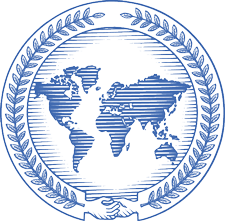This program is the first of its kind offered by an Association of Professional Schools of International Affairs member, and is among the very few graduate degrees available worldwide that directly focuses on social entrepreneurship.
This program is designed to assist you in acquiring the knowledge, skills, and mindset necessary to launch a new social entrepreneurial venture or play a key leadership role in an existing one. These ventures may be new stand-alone enterprises or may be contained within existing organizations.
It is oriented at developing practitioners. Its focus is more on the doing of social enterprise than its study as a subject of inquiry.
This program’s curriculum blends learning about both hard and soft management practices with an examination of the dynamics of social innovation. Based in the School of International Service, it gives special attention to enterprises dealing with issues that are global in scope.
Two-year program: 39-42 credits required for graduation
Admission deadline: January 15 for the class entering that August.
Why Study Social Entrepreneurship in an International Relations School?
•Because the field is a global one. Cutting-edge ideas are originating in Asia, Europe, Latin America, and Africa. Learning from and working across these cultures is what students in the School of International Service do every day.
•Because the field is a multidisciplinary one. The School of International Service faculty is home to economists, communications professionals, ecologists, human rights and international development specialists, political scientists, sociologists, and management consultants – just the mix needed to stimulate your creativity by providing multiple perspectives on the problems you are most interested in tackling.
•Because the field is a multisectoral one. Social entrepreneurship is about more than launching a new business with a social purpose. It is also about you driving change from within existing organizations and working across sectors. Social Enterprise at the School of International Service blends management-know with study of innovation and social change, and puts it all in a silo-free context.
•Because 100% of your fellow students will be planning careers in social enterprise. Some will have business backgrounds, others experience in the social sector. All will be world-minded and look forward to unsectored careers. All value societal benefits over private profits, stakeholders as well as shareholders. Subjects that may be off-to-the-side electives in other schools are the main course here.
What’s the Program Like?
When students arrive for orientation, the first thing that happens is they are paired up and told they have 12 weeks to help a Washington DC-based nonprofit or social enterprise solve a pressing problem.
This sink-or-swim “plunge” into the real world drives home the practical orientation of this Masters curriculum, with its heavy emphasis on experiential learning and personalized coaching.
All the student pairs in the inaugural entering cohort “swam” and received lavish praise from the leaders of the organizations they helped. As a reward for high performance, a team of them began helping the CEO and co-founder of Honest Tea address an important issue he faces.
Resume-worthy experiences like these motivate our students by stretching their abilities, and making crystal-clear what skills and knowledge each needs to acquire. They also keep the program focused on real world practice, not academic theory.
This 2-year degree is based in American University’s School of International Service, a school ranked – along with Columbia, Harvard, and Princeton – in Foreign Policy’s 2012 list of “top 10 programs for those looking to run the world.” SIS is glad to be among that company, but our students tend to be more interested in changing things than running them.
Many of the incoming students chose this program rather than a business or public policy school because they wanted to completely immerse themselves in social entrepreneurship, studying with people who had similar career passions, and who can be part of a lifetime support network.
For a detailed case study description of the program – and the logic that went into creating it – download this paper that was presented at the 8th Annual NYU-Stern Conference on Social Entrepreneurship in New York on November 4, 2011.
